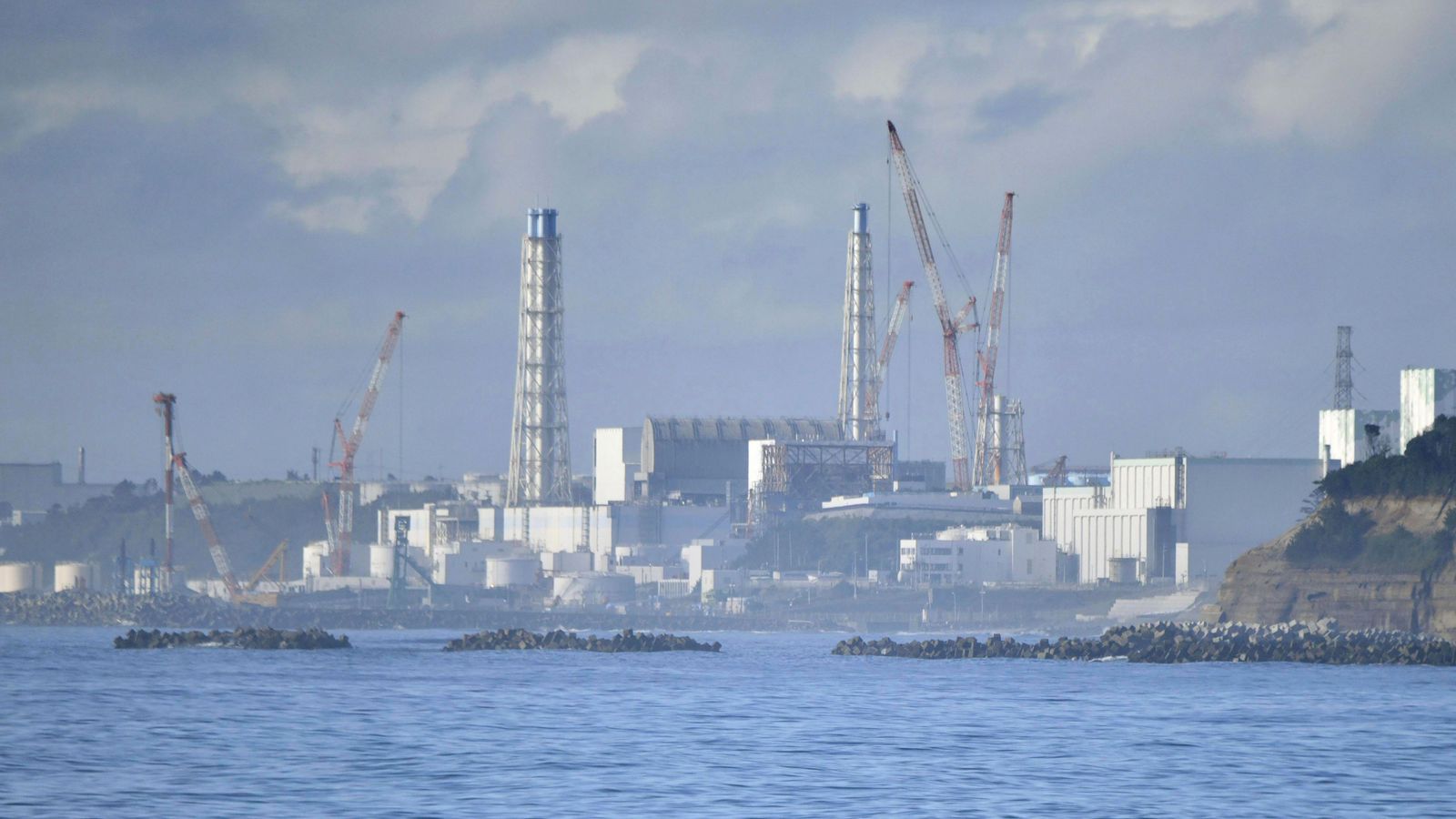The operator of the Fukushima nuclear plant has started releasing radioactive wastewater into the sea.
In a live video from a control room at the plant on Thursday, Tokyo Electric Power Company Holdings showed a staff member turn on a seawater pump, marking the beginning of the controversial project that is expected to last for decades.
Fishing groups in Japan have opposed the plan out of worry of damage to the reputation of their seafood. Groups in China and South Korea have also raised concerns.
But the Japanese government and plant operators say the water must be released to make room for the plant’s decommissioning and to prevent accidental leaks.
The treatment and dilution will make the wastewater safer than international standards and its environmental impact will be negligibly small, they said.
The move was greenlighted by the UN nuclear watchdog last month.
The release begins more than 12 years after the March 2011 nuclear meltdowns, caused by a massive earthquake and tsunami.
Fukushima nuclear plant: Is flushing out radioactive water safe?
Releasing nuclear waste from Fukushima is safe – but it’s destroyed the livelihood of fishermen
Japan to start releasing treated radioactive water from Fukushima nuclear disaster into the sea
The pump that was activated sends the first batch of the diluted, treated water from a mixing pool to a secondary pool, where the water is then discharged into the ocean through an undersea tunnel.
A batch of 460 tons will be sent to the mixing pool on Thursday for the actual discharge.
The water is collected and partly recycled as cooling water after treatment, with the rest stored in around 1,000 tanks, which are already filled to 98% of their 1.37-million-ton capacity.
Those tanks, which cover much of the plant complex, must be freed up to build the new facilities needed for the decommissioning process, officials said.
Fukushima’s fisheries, tourism and economy – still recovering from the disaster 12 years ago – worry the release could be the beginning of new problems.
The area’s current fish catch is only about one-fifth its pre-disaster level, in part due to a decline in the fishing population.
China has also tightened up radiation testing on Japanese products from Fukushima and nine other areas, halting exports at customs for weeks, officials said.
South Korean Prime Minister Han Duck-soo urged Japan this morning to transparently and responsibly disclose information on its wastewater release from the plant for the next 30 years.
Meanwhile, China’s nuclear safety administration on Thursday called the Japanese government “extremely selfish and irresponsible in forcibly launching the discharge… putting its own selfish interests above the well-being of all mankind”.











